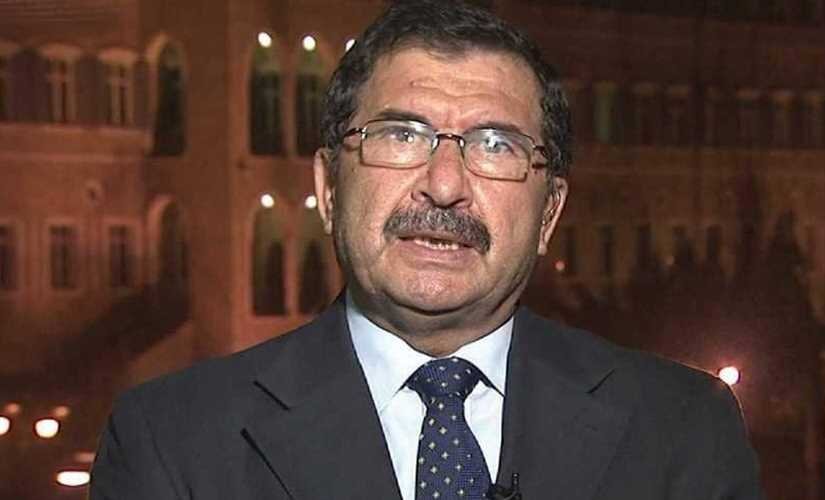By Ali A. Jenabzadeh
TEHRAN- A senior Lebanese political analyst says that Ebrahim Raisi’s firmness and decisiveness have frightened Israel and its Western allies.
“Raisi is a decisive man who is obeyed by all armed forces because of his reputation and knowledge as a person who represents the revolution,” Amin Hoteit tells the Tehran Times.
“Therefore, Israel is concerned about the future and all its sabotage attempts that are intended to push the country towards chaos. Israel feels intimidated and won’t dare to repeat aggression,” Hoteit notes.
Following is the text of the interview:
Q: What messages do the Iranian elections carry to the world and the region?
A: Iran succeeded in organizing its presidential elections in a way that surprised the world. This election sent important messages to the world that can be summed up in three main messages.
The first message is that Iran adheres to a rational democracy in accordance with Islamic principles and respects the will of the people, and their role in all its history and circumstances.
The second message is that the Iranian people are committed to their revolution, especially since they found in the election a position that represents the causes of the revolution and its principles. In fact, it was a referendum on the political system, and thus heading to the polls means adherence to the principles of the revolution and the republic.
The third message is that the people and institutions in the state are all working together for the sake of achieving the goals, and they are harmonious and leave no room for external interference. At this point, the election’s success was a decisive message that all acts of sabotage and distortion led by the United States of America failed to achieve its goals. America mobilized 250 television stations and media outlets in order to distort and change reality, but they failed to reach this goal.
Q: What changes do you expect from the new Iranian government?
A: We should mention that Iran is a state based on institutions, not persons. Institutions survive and maintain their functions and people activate the functions of institutions. As for the new policies that Iranian politicians and administrative officials may take, it will be on two sides: the first aspect is to speed up internal progress, and the second aspect is seriousness in dealing with foreign powers and decisiveness in foreign policy and important decisions.
Q: Why does Western media insist on presenting an extremist image of the elected president, Ibrahim Raisi?
A: Ibrahim Raisi represents an honest and accurate model of the Islamic Revolution, as he contributed to the revolution. He joined the revolution since he was young and the revolution’s principles are entrenched in his mind.
Since the West fears this revolution and has encountered it since 1979, whoever was more adherent and more committed to the principles of this revolution will face Western rejection. The reason why the West feared the presidency of Ibrahim Raisi is because it embodies the reality of the Islamic Revolution in its depth and comprehensiveness.
Especially since the history of this person shows his decisiveness, firmness, strength and decision-making power. He is not a man of weak decisions or gray solutions. He is a man of decisiveness and clear decision.
Q: How do you evaluate Israel's reaction to the election results? Do you expect an escalation between Iran and Israel?
A: The West in general, and Israel in particular, fear strong and good governance in Iran and the region. They look for weak, volatile and unstable governance.
Given their knowledge of the personality of Ibrahim Raisi, they see that all their maneuvers, operations, tricks, and deceptions in pushing Iran towards instability and chaos would fail.
Raisi is a decisive man that all armed forces will obey him because of his reputation and knowledge as a person who represents the revolution. Therefore, Israel is concerned about the future and all its sabotage attempts that are intended to push the country towards chaos. Israel feels intimidated and won’t dare to repeat aggression.
The Zionists always fear decisiveness and firmness in decisions taken in accordance with the principles of the Islamic Republic.
Q: What are the main challenges facing the new Iranian government in the region?
A: In my opinion, there are four main challenges facing Ibrahim Raisi. The first challenge is internal when the Iranian people need to preserve national unity and rally about the principles of the Islamic Revolution as a matter that constitutes a wealth for Iran that must be preserved. The second challenge is economic and confronting the economic war or economic terrorism practiced by America and its allies against the Iranian state. The third challenge is strategic, and it relates to Iran’s position in the axis of resistance.
Iran enjoys a geopolitical position in the region, especially with the important changes that have been taking place now, including the failure of the global war that targeted the axis of resistance in Syria, the American decision to withdraw from Afghanistan and the Turkish engagement in Afghanistan, as well as the American decision to reduce its military presence in the Middle East (West Asia).
Add to it the war on Yemen, and there are many things that require serious and resolute action on the strategic level. But the fourth challenge is international relations, especially its look to the East, and the proper regulation of its relations with Russia and China.


No comments:
Post a Comment